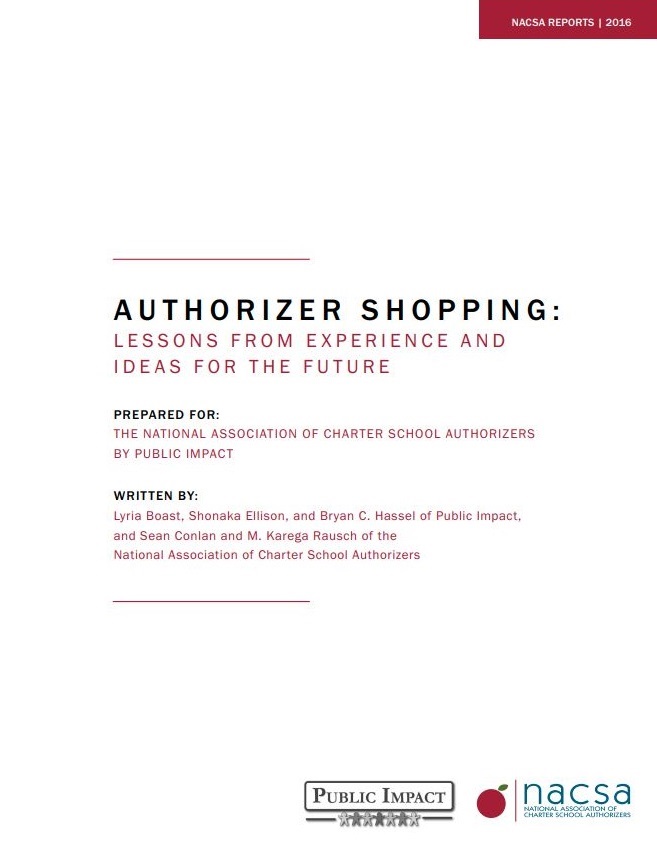As charter school authorizers and states have increased performance expectations and grown less hesitant to close failing schools, “authorizer shopping” has emerged as a growing threat to overall charter school quality. Authorizer shopping happens when a charter school chooses or changes its authorizer specifically to avoid accountability. A low-performing school may shop for a new authorizer to avoid closure, or reopen under a new authorizer after closure. This report considers five examples of authorizer shopping in action and provides specific guidance to authorizers, policymakers, and advocates to address authorizer shopping.

